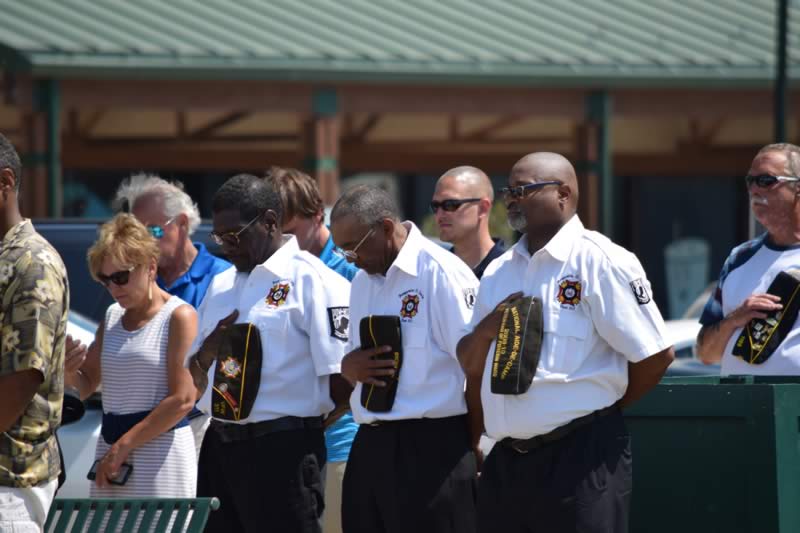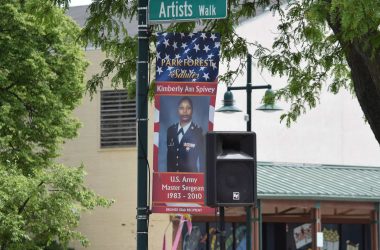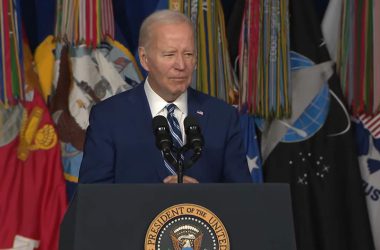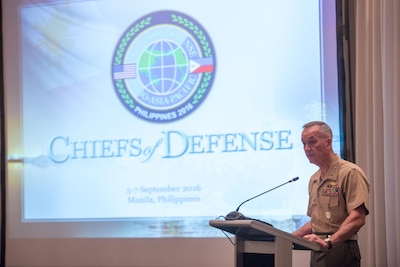MANILA, Philippines–(ENEWSPF)–September 6, 2016
By: Lisa Ferdinando
Addressing military leaders from 29 Pacific nations, the chairman of the Joint Chiefs of Staff today voiced concern over North Korea’s recent missile activity and highlighted progress against the Islamic State of Iraq and the Levant.
Marine Corps Gen. Joe Dunford, chairman of the Joint Chiefs of Staff, delivers opening remarks during the 2016 Chiefs of Defense Conference in Manila, the capital city of the Phillipines, Sept. 6, 2016. The event was hosted by the Armed Forces of the Philippines and U.S. Pacific Command. The CHOD Conference brings together military leaders to discuss regional and global challenges and to promote multilateral cooperation in the Indo-Asia-Pacific region. DoD photo by Army Sgt. James K. McCann
In an opening statement today at the 2016 Chiefs of Defense conference, Marine Corps Gen. Joe Dunford noted “particularly troubling” actions from North Korea, including its continued development of capabilities in nuclear and ballistic missiles and cyber.
He described North Korea’s firing of three ballistic missiles Sept. 5 as an “outrageous display” as G-20 leaders met in China.
“In the context of North Korea’s erratic behavior and their capability development, I think we see trends that are not only a challenge to regional security, but in fact challenge global security as well,” Dunford said.
Other challenges for the region, he said, include territorial disputes. The United States, he explained, has consistently called for a peaceful resolution to the disputes in accordance with international law.
‘Encouraging Success’ Against ISIL
The general told the forum that over the past year the coalition has had “encouraging success” in the fight against the core of ISIL in Iraq, Syria and Libya. Those successes include reducing the territory held by the terrorists, going after their resources, attacking their leadership and undermining their narrative.
“By no means are we complacent,” he said, adding there are significant political challenges that need to be addressed in the region.
“But the coalition, including many nations represented in this room, remains steady making measurable progress,” Dunford said. “I think it’s fair to say that we’ve got a great deal of momentum built up in the recent months.”
Enduring Commitment, Rebalance to the Pacific
The United States has adopted a more “geographically distributed posture to support expanded engagement and also to enhance our responsiveness,” Dunford said.
He lauded the strong ties between the United States and its Asia-Pacific partners.
“While the trajectory we’re developing in interoperability and increased cooperation is encouraging, we obviously have challenges in the region as well,” Dunford said.
As a Pacific nation, the United States will remain focused on the region, he pledged.
“Our historical roots reflect in the alliance and security agreements we maintain,” the chairman said. “I want to make it clear that we remain committed and fully prepared to meet our alliance responsibilities here in the region.”
Dunford expressed his condolences to the host nation, which suffered a terror attack Sept. 2 in the southern Philippine town of Davao. Fourteen people were killed in the nighttime bomb attack in a busy marketplace.
“The families of those who were killed or injured are in our thoughts and prayers,” Dunford said to the commander of the Armed Forces of the Philippines, Gen. Ricardo Visaya.
“We’ve all witnessed the dangers posed by violent extremism,” Dunford told the conference. “I’m confident that we all share the resolve and determination to fight against it.”
Dunford met privately with Visaya Sept. 5, according to Dunford’s spokesman Navy Capt. Greg Hicks.
In those talks, the two leaders discussed regional security issues, including the fight against violent extremism. The Philippine government has been battling a violent insurgency in the south for years.
In addition, Dunford reinforced the U.S. commitment to the Philippines and highlighted the nations’ strong military relations, Hicks said.
Strengthening Military Ties
The conference here in the Philippine capital is aimed at further boosting military-to-military ties and promoting multilateral cooperation in the Indo-Asia-Pacific, according to a U.S. Pacific Command official.
The Sept. 5-7 event is hosted by the Armed Forces of the Philippines and U.S. Pacific Command, with the theme, “Forging Cooperative Ties Amid Challenges to Secure Our Common Future.”
The commander of U.S. Pacific Command, Navy Adm. Harry Harris Jr., said the annual conference provides a unique forum to address regional challenges and prospects.
“The conference is also an opportunity to develop a shared understanding of the region, which will help us continue to work together as contributors to the security environment,” he said.
(Follow Lisa Ferdinando on Twitter: @FerdinandoDoD)
Source: http://defense.gov









